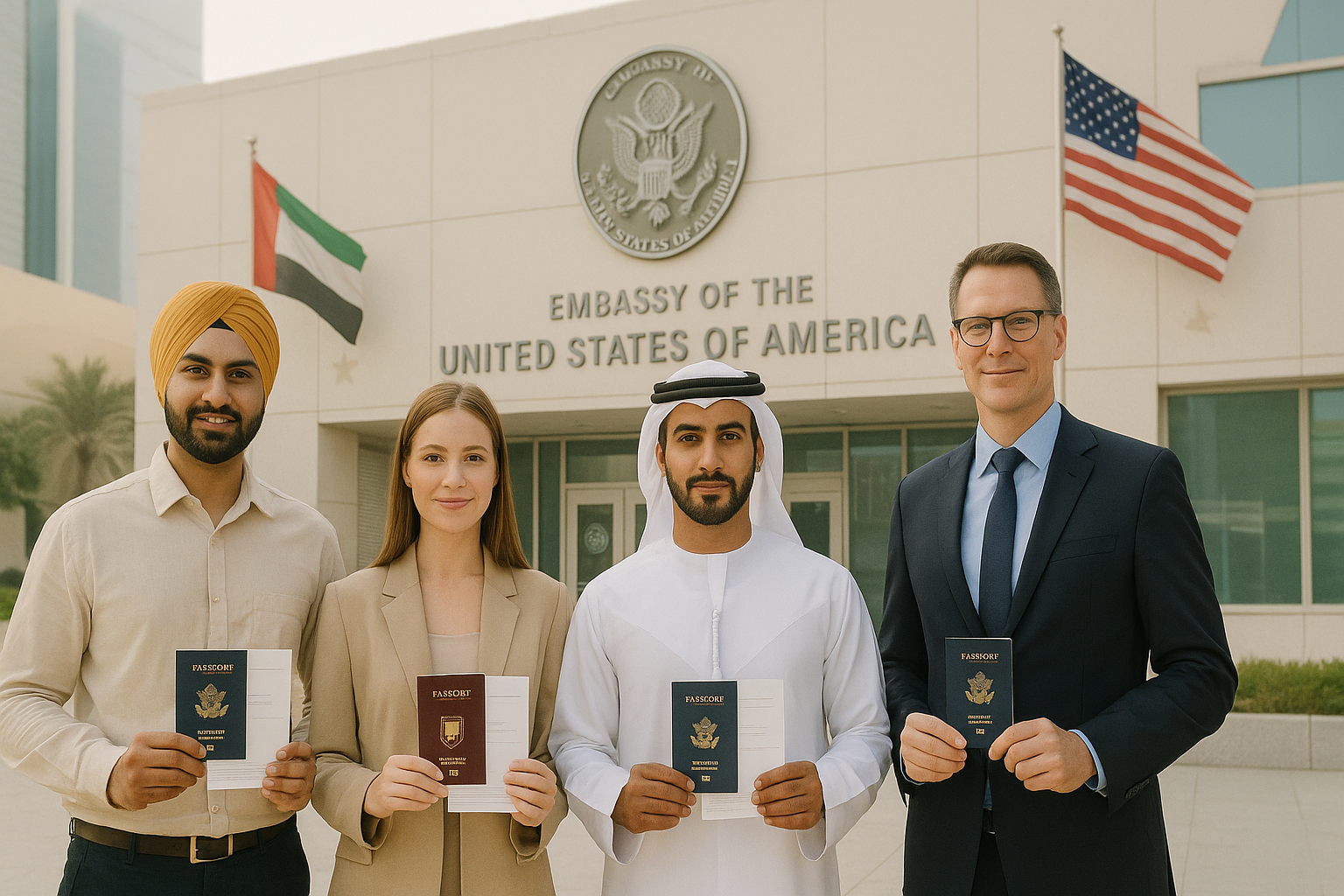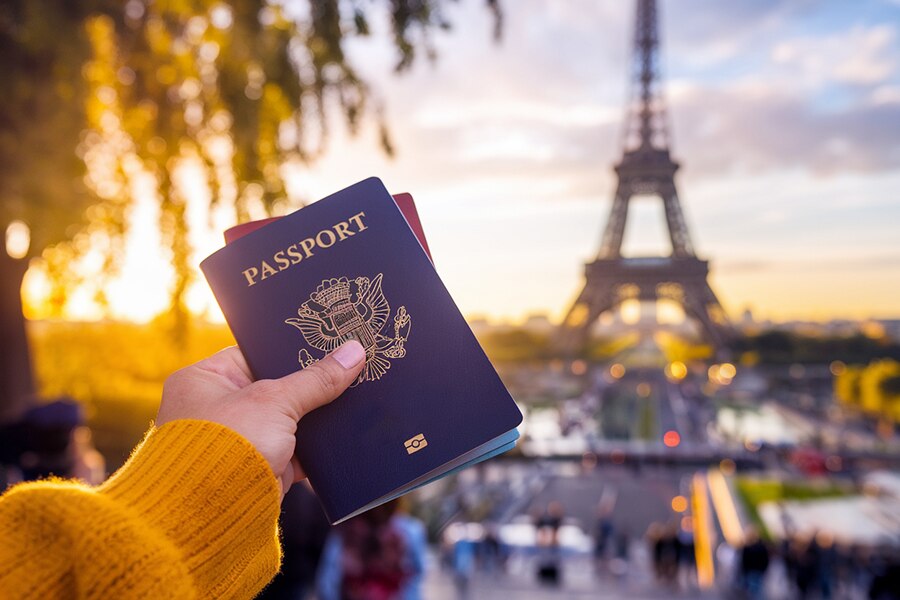10 Hidden Requirements for a Successful Visa USA Application from the UAE

For UAE residents applying for a US visa, success is not just about having money or a good travel history. Many applicants, even experienced expats or business owners, stumble over less obvious requirements. This comprehensive guide breaks down the “hidden” factors that can make or break your US visa application from the UAE—whether you’re an Indian, Russian, or any high-net-worth expatriate living in Dubai, Abu Dhabi, or elsewhere.
1. Choose the Right Visa Type and Confirm Eligibility
Selecting the correct visa category is crucial. The US offers a range of visas: B1/B2 for tourists and business, F-1 for students, L-1 for intra-company transfers, E-2 for treaty investors (if eligible), and more.
- Be honest about your purpose. Don’t apply for a tourist visa if your real intent is business or study; consular officers are trained to spot “visa category mismatch,” which often results in refusal.
- Check eligibility. Each visa has unique requirements. For F-1 student visas, you need an admission letter (Form I-20) and proof of SEVIS fee payment. For B1/B2, clear evidence of short-term travel intent is essential.
- UAE residency matters. The US Consulate prefers applicants who live in the UAE and can prove long-term residency with an Emirates ID or valid UAE visa. Short-term visitors to the UAE may be required to apply in their home country or provide a strong reason for applying in the UAE.
- Insider tip: If you’re a high-net-worth individual (HNI), specialized visas (like E-2 or L-1) may suit your situation better than the standard B1/B2. Assess your true travel and business objectives before applying.
2. Start Early and Plan for Long Wait Times
Timing is a hidden challenge for many UAE-based applicants. US visa appointments in Dubai and Abu Dhabi can be booked out months—sometimes over a year—in advance due to high demand.
- Apply as early as possible. As soon as you anticipate traveling, fill out the DS-160 form and pay your visa fee to secure your spot in the appointment queue.
- Expect delays. Wait times for interviews in UAE consulates often stretch to 6–12 months or more. For fixed travel dates (vacations, university start dates), this is critical.
- Alternative locations: If UAE appointments are unavailable, you may book interviews at US embassies in neighboring GCC countries (Saudi Arabia, Bahrain, Oman), provided they accept UAE residents. This is both legal and increasingly popular, though you’ll need to factor in travel logistics.
- Emergency appointments: Only granted for true emergencies and with supporting documentation (e.g., medical needs, urgent academic start dates). Most applicants must simply plan ahead.
3. Flawless Application Forms and Documentation
The DS-160 application form is the backbone of your process. Accuracy and consistency are paramount.
- Check details thoroughly. All information on your DS-160 must match your supporting documents—discrepancies (e.g., job title, employment dates, spelling errors) can cause suspicion and delays.
- Don’t leave blanks. Always fill every applicable field; use “Not Applicable” if necessary, but avoid omissions.
- Have a complete set of supporting documents ready, even though officers usually ask for your passport and appointment confirmation only. Bring:
- DS-160 confirmation and visa fee receipt
- Appointment confirmation printout
- Recent photo (5×5 cm, if upload fails)
- Current and previous passports
- UAE residency visa/Emirates ID
- Employment letter or trade license
- Six months’ bank statements
- Travel plans/itinerary
- Invitation letter (if visiting family or business)
- Evidence of ties (property deeds, family documents)
- Any special forms if required (e.g., for previous arrests or medical issues)
- Present documents only when asked. Consular officers prefer concise, confident answers; pushing unsolicited documents can irritate them. Have everything organized so you can quickly produce requested evidence.
For Russian Citizens Applying in the UAE:
- Proof of UAE residency is essential.
- Show ties both to Russia (property, family) and/or the UAE (work contracts, business).
- Translate Russian documents to English.
- Security checks (including DS-5535 form) may apply to some applicants, especially males of certain age groups.
- Russian applicants face higher refusal rates (almost 40% in 2023), so thorough preparation is critical.
4. Financial Proof and Medical Insurance Preparedness
Proving sufficient funds is a key requirement, even if not always spelled out.
- Bank statements (6+ months) showing stable balances are standard. Your finances should comfortably cover your stay, flights, and accommodation.
- Employment letters and business documents (for business owners) further boost your credibility.
- Avoid unexplained large deposits. If your account shows sudden influxes of cash, be ready to explain.
- Credit cards and investments can be mentioned, but cash balance is most persuasive.
- Real estate or property ownership is more relevant as evidence of home ties than as trip funding.
- Medical insurance is not officially required for US tourist visas, unlike Schengen visas, but it’s strongly recommended. Having travel insurance signals responsibility and readiness for medical emergencies.
- Mention insurance in your interview if asked about emergencies; it reassures officers you won’t be a burden on US healthcare.
5. How to Prove Strong Ties to Home Country for USA Visa
US immigration law assumes all applicants may intend to immigrate unless proven otherwise. Demonstrating strong ties to your country of residence (or origin) is the most important “hidden” requirement.
- Types of ties: Employment/business, property ownership, family obligations, educational commitments, and community involvement.
- Stable job or business? Bring an employment letter or trade license.
- Property in the UAE or home country? Bring deeds or contracts.
- Family in the UAE or back home? Explain your responsibilities.
- For students, future plans to return for work or family.
- Emphasize whichever ties are strongest—for long-term expats, focus on UAE ties (residency, job, lease, family in Dubai) as well as any still in your home country.
- Be specific and credible. Practice clear, confident explanations: e.g., “I need to return for my job as a project manager; my family is settled in Dubai; my children’s school resumes on [date].”
- Supporting documents backup your story if the officer asks for proof.
6. Master the Visa Interview – Avoid Common Mistakes
The interview, often only a few minutes long, is decisive. Preparation, confidence, and honesty are your best tools.
- Be consistent with your DS-160. Review your application thoroughly and ensure your spoken answers match what’s on paper.
- Answer only what’s asked. Be succinct and avoid unnecessary elaboration. Don’t volunteer information about distant US relatives unless directly relevant.
- Stay calm and polite. Officers may repeat questions to check for consistency; don’t get flustered or defensive.
- Key questions: Purpose and duration of visit, funding, travel plans, ties to home/residence, who’s accompanying you.
- Never lie or guess. If unsure, politely ask for clarification or admit you don’t know.
Common Mistakes to Avoid
- Pushing documents without being asked. Only show supporting paperwork when requested.
- Inconsistent answers. Double-check your DS-160, and practice interview responses.
- Overexplaining or sharing irrelevant details. Stick to what’s asked.
- Demonstrating weak ties. If asked “what will you do after your trip?”—reiterate your ties (“return to work,” “resuming studies,” etc.).
- Nervous body language. Maintain eye contact and composure.
7. Differences Between Tourist and Student Visa Approval Criteria (USA)
Tourist (B1/B2) and student (F-1) visas have overlapping but distinct approval standards.
- Tourist visas focus on short-stay intent and strong ties to home/residence ensuring you’ll return after a few weeks or months.
- Student visas (F-1) expect longer stays. Officers assess your educational plan, financial readiness, and whether you’ll return home after studies.
- F-1 requirements: I-20 form, SEVIS fee receipt, academic transcripts, proof of funds for the first year, and explanation of why you chose your program.
- Interview focus: Educational aspirations, funding, career plans, and intent to return.
- Trick question: “Do you plan to work in the US after graduation?” Best answer: explain how the degree will help you at home, since F-1 is not dual intent.
- Tailor your preparation to your visa category. For students, be ready to explain your course and future plans. For tourists, focus on trip details and immediate ties.
8. Background Checks, Security, and Previous Travel History
Your background and travel history are scrutinized as part of US security checks.
- Past US visa denials or overstays must be disclosed. If you were denied previously, explain what has changed (e.g., new job, stronger ties).
- Criminal history: Any arrest or conviction must be declared; certain offenses may make you ineligible.
- Travel history: Previous visits to countries like the US, UK, Schengen area, Canada, etc., and honoring those visas strengthen your case. A lack of travel isn’t a deal-breaker but may prompt more questions about ties.
- Nationality and geopolitics can affect scrutiny (e.g., Russian citizens have recently faced higher refusal rates). You can’t change your passport, but you can ensure your application is impeccable.
- Be honest and prepared to discuss any “red flag” issues; hiding them is far worse than explaining them.
9. Insider Tips and Real-Life Examples
- Prepare a cover letter. A concise summary of your trip, purpose, and ties can clarify your case if the officer chooses to review your documents.
- Learn from others’ experiences. Specificity matters: having a clear itinerary and purpose gets better results than vague travel plans.
- Document readiness: You are the main actor in your interview; documents are supporting cast. Confidence and clarity often outweigh paperwork.
- Stay updated. Changes in fees, appointment wait times, and policy shifts can all impact your application. Double-check all requirements before submission.
- UAE residency is a plus. US officers view UAE residents as generally low-risk, especially if you have a strong track record or long-term UAE visa.
- High-net-worth travelers: If frequent travel or eventual US residency is your goal, explore specialized visa options (E-2, EB-5) and consider professional guidance.
10. Stay Updated or Get Professional Guidance
US visa regulations and procedures change frequently. The final hidden requirement is staying current and not relying on outdated information.
- Monitor official US Embassy/Consulate websites for the UAE for the latest on appointments, procedures, closures, and news.
- Consider consulting a visa expert—especially for complex cases, multiple passports, staff accompanying you, or past issues. Professionals can check your application, coach you for the interview, and highlight any weaknesses before you submit.
- A professional review reduces risk. The cost of a refusal (in time, money, and lost opportunities) can far outweigh consulting fees. Experienced agencies also provide the latest updates on policy and local trends.
For more details on urgent US visa services, visit this page.
FAQs – Top Questions on US Visa Applications from Dubai
- Q1: What are the most common interview mistakes for UAE residents?
A: Inconsistent answers, volunteering irrelevant details, and over-reliance on showing documents. Failing to prove strong home ties is a frequent reason for refusal. - Q2: How can I prove strong ties if I’m an expat in the UAE?
A: Show stable employment, business, property, family, or community commitments in the UAE (and home country if relevant). The goal is to demonstrate you’re anchored outside the US. - Q3: Is medical insurance required for a US visa from Dubai?
A: No, but it’s highly recommended for your own safety. For students, insurance is usually arranged upon enrolling at a US school. - Q4: Difference between applying as a UAE citizen vs. expat (Indian, Russian) in the UAE?
A: Steps are similar, but expats must show legal UAE residency and explain why they’re applying in the UAE. Russian applicants should be especially thorough due to higher refusal rates. - Q5: Extra documents for Russians applying in the UAE?
A: No unique documents per se, but all Russian-language papers need English translation, and ties to both UAE and Russia should be documented. Allow extra time in case of security screening. - Q6: What to do if US visa wait times are too long in Dubai?
A: Try for emergency appointments if eligible, or book an interview in another GCC country that accepts UAE residents. Monitor the appointment portal for cancellations.
Conclusion – Your Visa Success: Next Steps
Securing a US visa from the UAE is entirely achievable with the right approach. The real difference lies in anticipating the hidden requirements—from choosing the correct visa and planning for long waits, to perfecting your paperwork and presenting your case confidently at interview.
- Prove strong ties.
- Prepare for the interview.
- Stay current with requirements.
- Seek professional advice for complex cases.
By proactively addressing these points, your path to the US—whether for leisure, business, or study—will be smoother and more successful. Need expert help? Visa consultancies like thevisa.com in Dubai offer personalized support, from strategy to document preparation to interview coaching. With the right preparation, your American dream—whether a family vacation, a degree, or a business meeting—is within reach. Start today: Apply early, prepare thoroughly, and consider professional guidance to maximize your odds of a smooth, successful US visa journey. Safe travels! Contact Us



